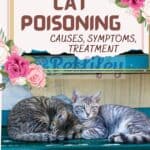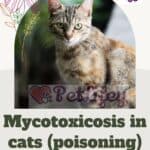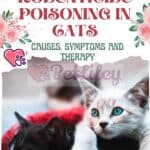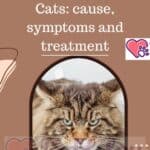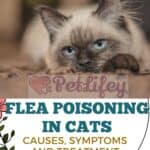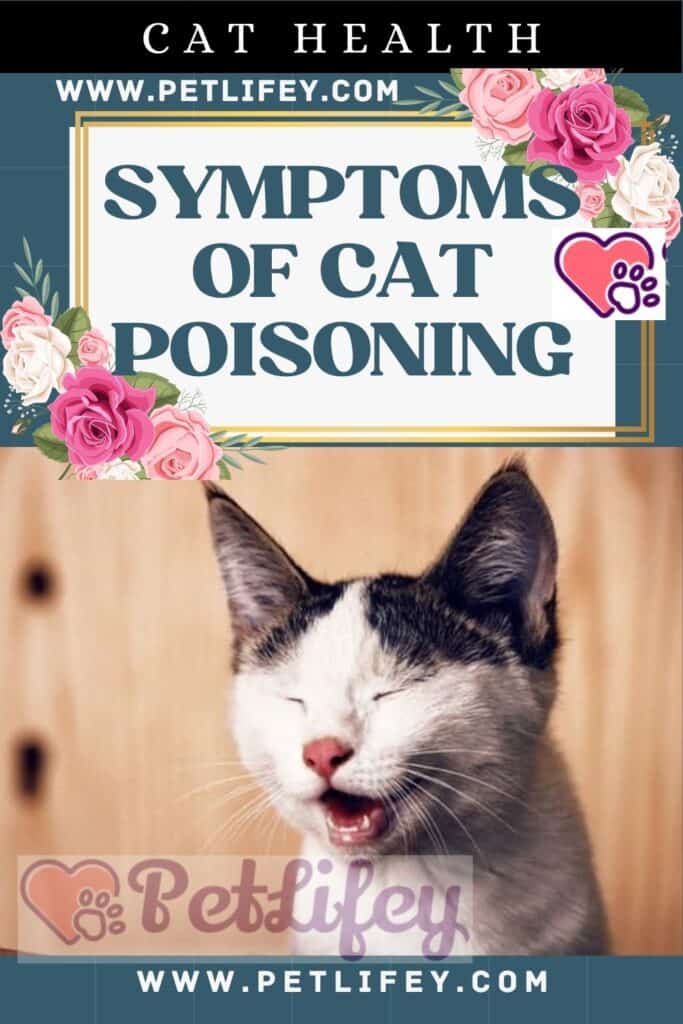
Symptoms of cat poisoning: learning to recognize them can be of vital importance to be able to intervene and save our furry friend.
Living with a pet at home involves knowing some basic points of first aid. Particularly if we live with a cat, we must be ready for anything. The cat often gets into very complicated situations.
We all know how much his extreme curiosity often and willingly drags him outside the house, in search of who knows what or better still who knows who to capture. How many times do we see him leave the house and dash towards the garden to hunt for some mouse or bird that will fall prey to him, of which he will be proud.
Unfortunately, however, it can happen that what he can come across is not really a mouse but some poison that can compromise his health. But what are the symptoms of cat poisoning? How will we recognize them?
Symptoms of cat poisoning
Symptoms of cat poisoning, regardless of the type of poisoning, can be :
- difficulty in breathing;
- blue tongue or gums;
- wheezing;
- vomiting in cats ;
- diarrhea;
- abundant salivation;
- depression;
- seizures in cats ;
- tremors or involuntary muscle contractions;
- dark-colored urine;
- weakness and potential unconsciousness;
- gastric irritation;
- coughing and sneezing;
- frequent urinations;
- dilated pupils
The causes
The causes of cat poisoning can be different, unfortunately there are many plants, objects and poisons that can damage the health of our feline. Below we list a series of elements that can be poisonous to the cat, they are:
- aspirin;
- Christmas Star;
- chocolate for the cat;
- cigarette smoke;
- water and bleach;
- raw fish;
- mothballs;
- toothpaste;
- rat poison.
Unfortunately, as we have been able to see, these are very common things and that our cat can easily have within reach. This is why the first step is to show oneself as attentive as possible to the arrangement of these products in the house.
The treatment

In order to understand how it is right to intervene to help our cat accusing symptoms of poisoning, we must first establish what was the cause of the poisoning. Depending on the product ingested or inhaled, it will be necessary to act differently, for example:
- if the cat has ingested human drugs: call the veterinarian immediately and bring the package of the product;
- if the cat has ingested acids, alkaline products or petroleum products: do not induce vomiting
- if you have swallowed an acid, you can administer sodium bicarbonate and vegetable oil
- if he has ingested an alkaline product, milk and vinegar can be administered to the animal in equal doses
- if you have ingested petroleum or derivatives, make sure you drink plenty of water
- if it is the cat’s fur that is contaminated by poisonous chemical agents: it is necessary to wear rubber gloves and use a towel and wrap the cat in it, to prevent it from licking; shave the area with contaminated hair and remove the flea collar where present .
The speed of action of toxic products is not the same for all types of poison, some of them act with lightning speed while others are more subtle and start within 48-72 and beyond.
The veterinarian will certainly want to ask the cat owner some questions about the ingested or inhaled substance, especially asking to bring the package to the clinic in order to view the composition of the toxic substance and be able to read the therapeutic indications regarding accidental contacts.
Stability the possible cause of the poisoning in the cat, the veterinarian will decide the type of treatment with which to proceed based on the symptoms, the ingested substance, the responses of the owner. It is always advisable to refer to the doctor as the best solution is not always to induce vomiting in the dog or to administer the products listed above.
Most likely the animal will have to perform a gastric lavage and follow a therapy for the following days. Therefore, do not hesitate to contact the doctor and then immediately accompany your cat to the clinic.

